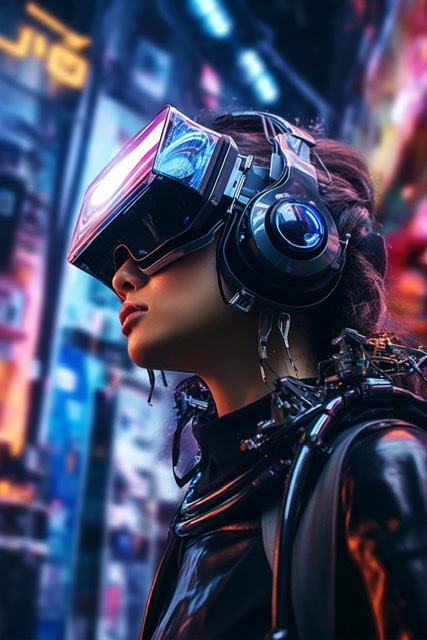Artificial Intelligence, especially the GPT (Generative Pre-trained Transformer), is one of the most exciting developments in the technology world. This technology is changing the game in so many ways! GPT can generate text that’s virtually indistinguishable from what a human would write.

It’s being used for tasks like language translation, content creation, and even customer service. With GPT, the possibilities are endless! It’s no wonder that industries across the board are being revolutionized by this amazing technology.
This AI technology stands at the forefront, charting new courses in human-computer interaction. As we look to the future, the potential trajectories and innovations in GPT technology paint a picture of profound change and exciting possibilities. This exploration delves into what the future might hold for GPT technology.
future of GPT technology is incredibly exciting and full of possibilities.
Artificial Intelligence Technology Advancement
As AI continues to advance, GPTs will become more advanced in their conversational abilities, making interactions more nuanced, context-aware, and emotionally intelligent. This will have a profound impact on areas like customer service, therapy bots, and personal assistants, making them more personal and effective.
As AI technology evolves, we can anticipate remarkable progress in cross-domain expertise. In the near future, it’s possible that GPTs will be proficient in multiple domains, ranging from law and medicine to art and engineering. This development will open up new possibilities for these AI-powered tools to become expert assistants. They will be able to provide valuable guidance, making specialized knowledge more accessible to all.
This technology is poised to make a substantial impact in creative fields. By collaborating with humans, it will bring new perspectives and ideas to the table, resulting in innovative books, music, and art. Additionally, GPT technology is set to revolutionize education by providing personalized learning experiences that adapt to each student’s unique style and pace, ultimately making education accessible and effective for all.
Concerns Raised Against GPT Advancement

As the capabilities of GPTs (Generative Pre-trained Transformers) continue to advance, there is an increasing concern about the ethical and responsible use of these systems. It is essential to address the issues of fairness, transparency, and preventing misuse of GPTs to ensure that they benefit society as a whole.
To achieve this, researchers and developers must focus on creating GPTs that are unbiased, transparent, and fair in their outputs. This includes addressing issues such as algorithmic bias, data privacy, and the potential misuse of GPTs for harmful or unethical purposes. By prioritizing ethical and responsible AI development, we can ensure that GPTs are used to enhance our lives in positive ways while minimizing the risks and potential negative consequences.
The future of GPTs looks promising as it holds the potential to break down language barriers and promote global communication. Real-time language translation and cultural adaptation are expected to be mastered by future GPTs, making communication more seamless and inclusive, with content being adapted to fit cultural contexts.
Apart from that, GPT technology will also bring about a revolution in predictive analytics and decision-making. These models will be able to analyze vast amounts of data, predict trends, anticipate challenges and provide valuable insights across various sectors, thus empowering organizations to make informed decisions.
As we look towards the future, it’s evident that GPT technology will play a crucial role in revolutionizing our living and working environments. By leveraging data from sensors and devices, it has the potential to enhance the efficiency and responsiveness of our homes, cities, and workplaces.
You can read more articles here
Application of AI in Virtual Spaces
Moreover, the application of GPTs in the realm of virtual and augmented reality is poised to transform the way we interact with virtual spaces. Whether it’s gaming, training simulations, or virtual meetings, these intelligent models are set to elevate the experience, making it more engaging and realistic than ever before.
The future of GPT technology is truly exciting and full of possibilities. With its advanced capabilities, it has the potential to revolutionize the field of artificial intelligence, enabling machines to better understand human language and process vast amounts of data with greater accuracy and speed.
This technology is also poised to meet the needs of our rapidly evolving, interconnected world, where data is becoming more important than ever before. As we continue to develop this technology, we will see new and innovative ways of interacting with machines that will cloud the lines between human and artificial intelligence, opening up new digital horizons and possibilities that we have yet to imagine.
